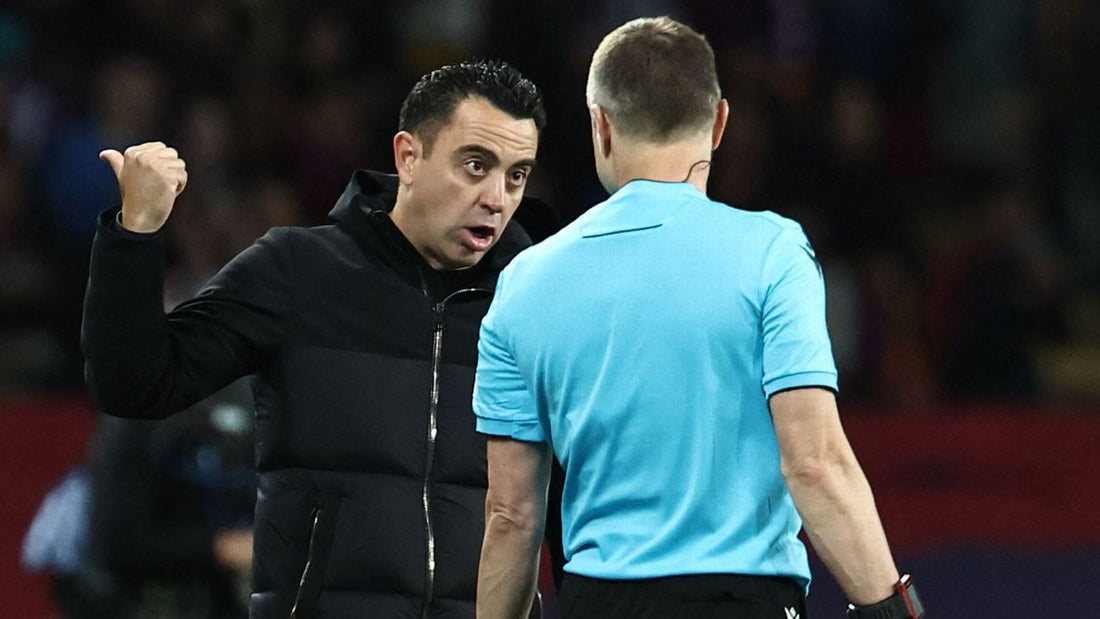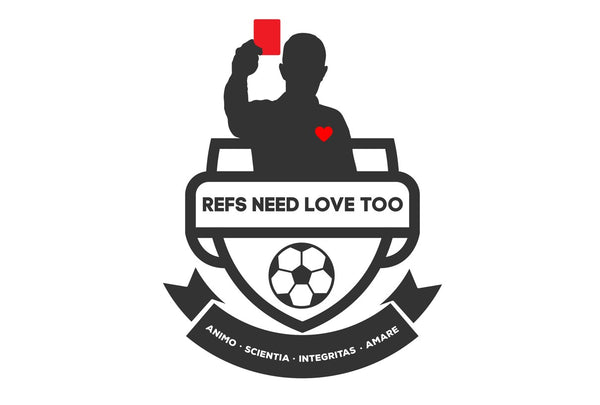
The Day I Was Shocked by a Coach
Share
The Day I Was Shocked by a Coach – A Soccer Ref's Story
I kicked off my day with a U15 ECNL match—a tight, competitive 1-0 game. As the center ref, I was feeling confident in my calls and covering a lot of ground, running over five miles during the match! By the end, I was exhausted but feeling good about how things had gone. Little did I know, I was in for a bit of post-match drama.
The Goal that Shocked Everyone
The game’s only goal was a stunner—a long counterattack followed by a left-footed, top-corner strike off a half-volley. Statistically, the chance of that shot going in was close to 0.1%, but it happened! The team that had been dominating all match suddenly found themselves down 1-0 and eventually lost. That’s when things got interesting.
Coach Confrontation
Immediately after the final whistle, the losing coach made a beeline for me. I hadn’t heard a word from him all game, so I figured he might actually be coming over to say “good game.” Wrong! He claimed that I missed a foul on the counterattack that led to the game-winning goal—a "key match decision," according to him, that cost his team the game.
I was stunned. This kind of confrontation doesn’t happen to me often, and I’m pretty self-aware. If I make a bad call, I can usually feel it. But this was a clean, competitive match. Sure, I handed out four yellow cards, but nothing controversial. Still, the coach was adamant that my missed call was the sole reason for their loss.
My Response
I listened to the coach as he calmly explained his point. I could have just said, “Thanks for the feedback, coach,” and walked away, but instead, I asked him, “Do you really think you lost because of that one call? Your team dominated the entire match.” He admitted that his team had chances, but still blamed the “key match decision.”
After about two minutes of back-and-forth, I told him, “Send me the video, and I’ll review it.” That seemed to settle things, and we moved on.
A Surprising Follow-Up
The same coach was on the sidelines for the next match, and I was AR1, right in front of his bench. I turned around and said, “No hard feelings, right?” He smiled and said, “If I don’t win, it’s like losing my home. I must win.” It hit me then—this pressure to win wasn’t just his own; it was systemic. The club, or maybe his own experiences, had drilled this mindset into him.
But here’s what bugged me: Instead of using that post-match time to coach his players on what they could have done better, he chose to blame the ref. What message did that send to his team? Instead of learning and improving, they were stuck in a victim mentality—blame the ref, not your own performance.
A (Sort Of) Apology
A few days later, I received an email from the coach. While he didn’t outright say “sorry,” he admitted that, after reviewing the footage, he didn’t think it was a foul. There was contact, maybe, but not enough to warrant a call. He still emphasized how critical the decision was to the outcome. I thanked him and asked for the full match video to review.
I rewrote my email response about five times. Part of me wanted to express how frustrating his post-match comments were and the impact they can have on a referee. But I held back, reminding myself that I’m mentally strong, focused on growth, and always open to learning from my mistakes. Unfortunately, that’s not always the case for everyone in the game.
Takeaway
Refereeing is tough, and it’s not just about making the right calls—it’s about handling the emotional rollercoaster that comes with the job. Coaches, players, and fans need to focus on growth and learning from every game, win or lose. Blaming the ref doesn’t help anyone.
So, to that coach, if you’re reading this, thanks for the email. Let’s keep the game about growth, not blame.
I kicked off my day with a U15 ECNL match—a tight, competitive 1-0 game. As the center ref, I was feeling confident in my calls and covering a lot of ground, running over five miles during the match! By the end, I was exhausted but feeling good about how things had gone. Little did I know, I was in for a bit of post-match drama.
The Goal that Shocked Everyone
The game’s only goal was a stunner—a long counterattack followed by a left-footed, top-corner strike off a half-volley. Statistically, the chance of that shot going in was close to 0.1%, but it happened! The team that had been dominating all match suddenly found themselves down 1-0 and eventually lost. That’s when things got interesting.
Coach Confrontation
Immediately after the final whistle, the losing coach made a beeline for me. I hadn’t heard a word from him all game, so I figured he might actually be coming over to say “good game.” Wrong! He claimed that I missed a foul on the counterattack that led to the game-winning goal—a "key match decision," according to him, that cost his team the game.
I was stunned. This kind of confrontation doesn’t happen to me often, and I’m pretty self-aware. If I make a bad call, I can usually feel it. But this was a clean, competitive match. Sure, I handed out four yellow cards, but nothing controversial. Still, the coach was adamant that my missed call was the sole reason for their loss.
My Response
I listened to the coach as he calmly explained his point. I could have just said, “Thanks for the feedback, coach,” and walked away, but instead, I asked him, “Do you really think you lost because of that one call? Your team dominated the entire match.” He admitted that his team had chances, but still blamed the “key match decision.”
After about two minutes of back-and-forth, I told him, “Send me the video, and I’ll review it.” That seemed to settle things, and we moved on.
A Surprising Follow-Up
The same coach was on the sidelines for the next match, and I was AR1, right in front of his bench. I turned around and said, “No hard feelings, right?” He smiled and said, “If I don’t win, it’s like losing my home. I must win.” It hit me then—this pressure to win wasn’t just his own; it was systemic. The club, or maybe his own experiences, had drilled this mindset into him.
But here’s what bugged me: Instead of using that post-match time to coach his players on what they could have done better, he chose to blame the ref. What message did that send to his team? Instead of learning and improving, they were stuck in a victim mentality—blame the ref, not your own performance.
A (Sort Of) Apology
A few days later, I received an email from the coach. While he didn’t outright say “sorry,” he admitted that, after reviewing the footage, he didn’t think it was a foul. There was contact, maybe, but not enough to warrant a call. He still emphasized how critical the decision was to the outcome. I thanked him and asked for the full match video to review.
I rewrote my email response about five times. Part of me wanted to express how frustrating his post-match comments were and the impact they can have on a referee. But I held back, reminding myself that I’m mentally strong, focused on growth, and always open to learning from my mistakes. Unfortunately, that’s not always the case for everyone in the game.
Takeaway
Refereeing is tough, and it’s not just about making the right calls—it’s about handling the emotional rollercoaster that comes with the job. Coaches, players, and fans need to focus on growth and learning from every game, win or lose. Blaming the ref doesn’t help anyone.
So, to that coach, if you’re reading this, thanks for the email. Let’s keep the game about growth, not blame.

3 comments
In one of my 16yr old son’s first games as centered, a coach insisted on stepping over the line in to the pitch throughout the game, particularly when things weren’t going his way. My son wasn’t sure how to handle it so I told him to give the coach a chat first then a verbal warning. It continued and he was clearly taking advantage of the fact that my son was new and still learning the ropes. At half time (I was A/R) I told the coach that this couldn’t continue and he’d get no more warnings. Well he did it again and got a yellow. As soon as the full time whistle blew he stormed on to the pitch and started yelling at my son very loudly. I’m afraid to say I lost my temper and yelled back. He calmed down and left, as did I, but I’ve felt bad about how I handled it ever since. I filled out a game report and spoke to the assignor, who assured me I’d be fine as this wasn’t the first time with this coach. But I know I shouldn’t have done it. Always learning! Love your channel David.
Last week I had a coach complain about ‘pushing’. It was a girls U 14 game. I gave him the ‘Ill work on it ’, and left. But I spent hours thinking about it. I’ve come up with about 6 reasons his team got destroyed 4-0. None of them have anything to do with refereeing.
Nice work David. I appreciate you taking the high road but coaches need to be held accountable. A YC post match is warranted. Keep up the great work!!